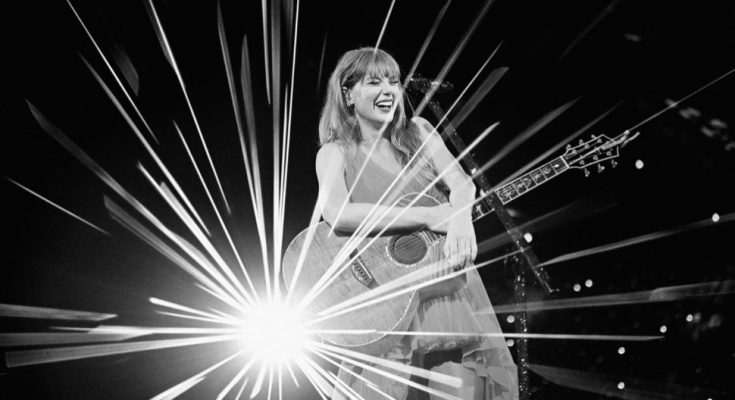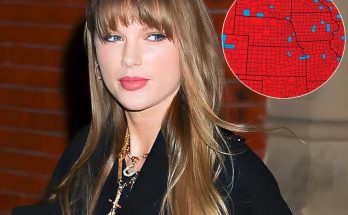“That is Mother,” said Eswyn Chen, a doctoral student in atmospheric science, gesturing at a life-size cutout of Taylor Swift. The audience—several dozen academics, students, and fans in a lecture hall, plus me—nodded in approval.
And then she launched into her version of Swift’s “Cardigan,” rewritten so the lyrics were no longer about the reenergizing nature of a romantic relationship, but instead about “contourf functions” and the “eddy-feedback parameter.”
This was “critical karaoke,” the climax of Tay Day, a conference held at the University of Liverpool’s Institute of Popular Music to celebrate the arrival of Swift’s Eras Tour in Britain. Over the accompaniment of a live band, one of the organizers, Amy Skjerseth, delivered a short paper on “mondegreens,” or misheard lyrics. (She once thought “I feel the lavender haze creeping up on me” was “I feel 11 turkeys creeping up on me.”) The other organizer, Samuel Murray, then delivered an essay on protest music to “Only the Young.” Chen was up last, declaring that she had dared herself to sing in public because it was her birthday. “Tofu pile—the only pick,” she sang about her experience of traveling to academic conferences. “Stressed-out staff, in Munich / When you are vegan, you get to eat nothing.” At the end, she turned around and took a selfie with the room. We all beamed and waved in the background.
The entire experience was—and I say this with love—one of the dorkiest things I have seen in my entire life. Let us pray that Ron DeSantis never hears that academics are delivering papers with titles like “Puurrfecting the Swift Brand and Feline Fandom in Taylor Swift Advertising Spots,” or he would start a full-blown campaign to defund the universities. But everyone here got the joke—the new field of Swift studies is both serious business and self-consciously awkward fun. Dorkiness is, after all, the core of Swift’s appeal.



